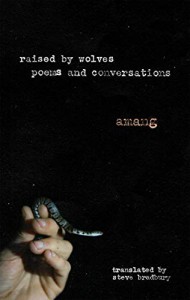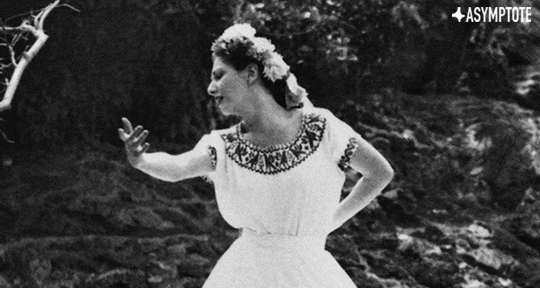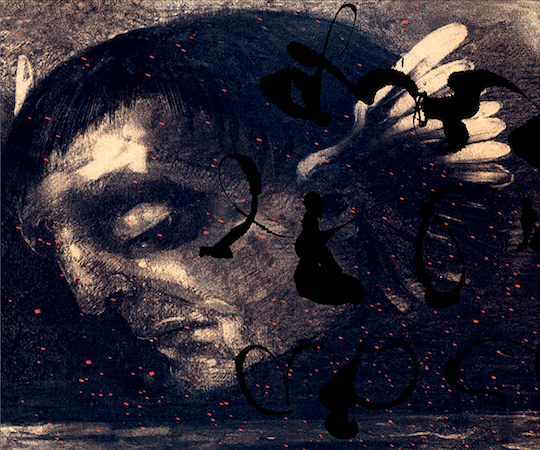This month’s selected new translations from around the world cross more than geographic boundaries: the first combines deliciously feral Taiwanese poetry with exclusive, first-hand conversations on the process of writing and translating it; the second features a series of stylistically varied but equally poignant essays on an acclaimed German author’s personal and political journey. Both titles prompt us to peek into their subjects’ fascinating lives and work, and we’re all too happy to indulge.

Raised by Wolves: Poems and Conversations by Amang, translated from the Chinese by Steve Bradbury, Deep Vellum, 2020
Review by Filip Noubel, Editor-at-Large for Uzbekistan
When I agreed to review Raised by Wolves, I thought I had signed up to read a translation of contemporary Taiwanese poetry. I very quickly realized my mistake: Raised by Wolves is much more than that; it is an invitation to partake in a feast of words that agree to disagree, that clash and dissolve to reemerge in another language. It is also an act of transgressive eavesdropping, as the poet and her translator let readers in on their intimate discussions about their craft (the book’s subtitle is “poems and conversations”).
Amang has published several collections, including On/Off: Selected Poems of Amang, 1995-2002 (2003), No Daddy (2008), Chariots of Women (2016), and As We Embrace Thousands Are Dying (2016). In addition, she is a filmmaker and blogger, and her eclectic interests are clearly reflected in this new translation of her work. A couple of themes, however, seem to be especially prevalent throughout.
First, as the poet discloses (incidentally explaining her collection’s English title), she was raised mostly by her grandmother, who “was quite a character. She was very powerful and courageous. A she-wolf. She would do or say whatever she wanted. None of th[at] Confucian nonsense for her.” In line with this almost feral sentiment, many poems include raw images celebrating nature or the vibrance of the human body. In one, for instance, Amang writes: “Thrusting your hand down a tiger’s throat / to tear out his heart / so, too, I / cut from a book a sheet of / ice.” And elsewhere: “I can give you anything / . . . / except that puny little stick / they call a prick / and is that worth making a fuss about?” READ MORE…



